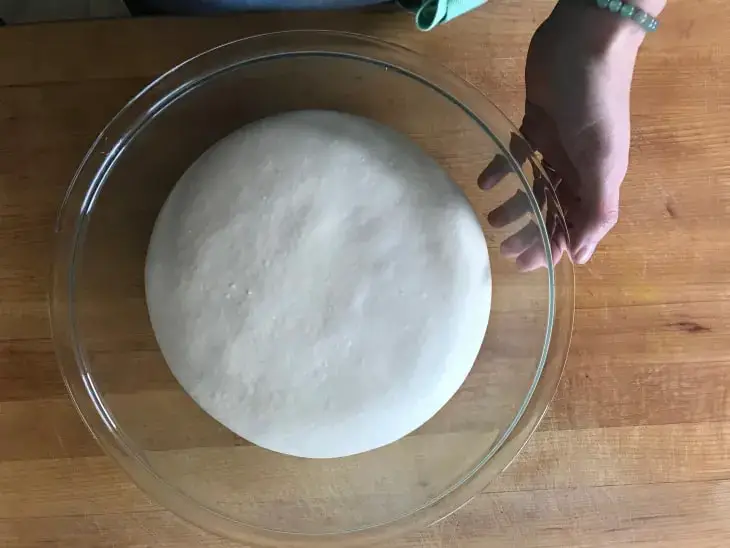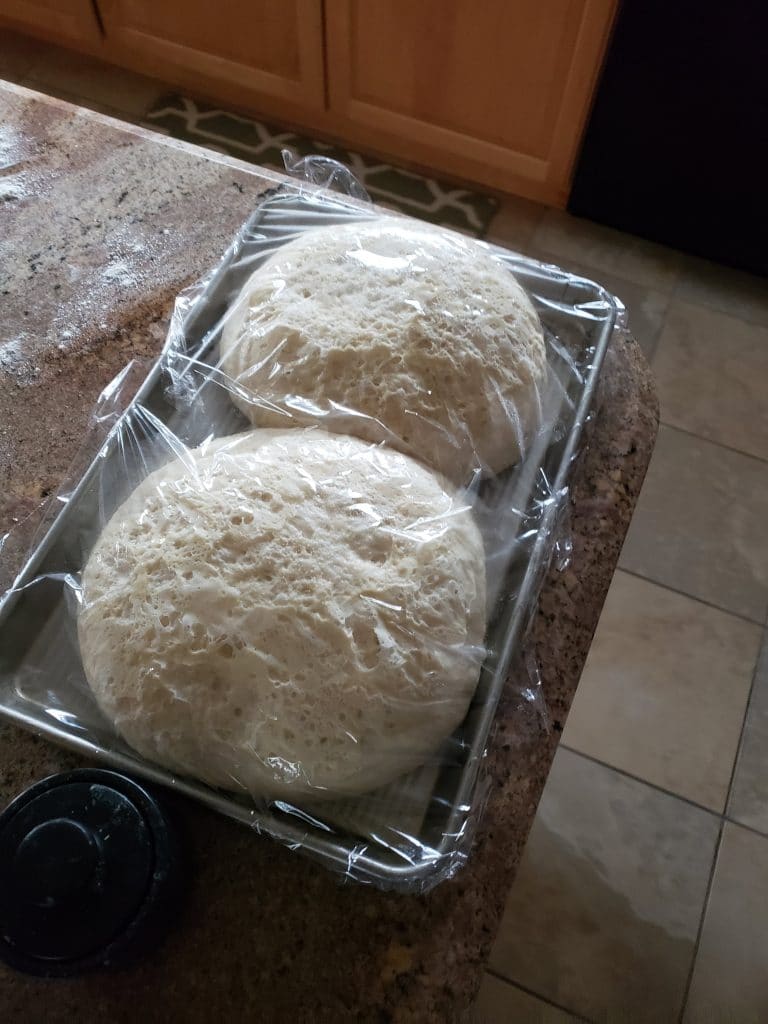Making pizza dough at home often has a little bit of trial and error, but it’s absolutely worth learning how to do properly. If you’ve ever made pizza at home, you’ll know how easy it is to forget about the pizza dough for hours, only to come back to a huge, bubbly, soft dough. So, this raises the question of how long a pizza dough can sit out.
Pizza dough can typically sit out for four hours without over-proofing. However, there is a big caveat to this. The answer unfortunately depends on ambient temperature, the amount of yeast, and the temperature of water used when mixing the dough. For example, dough could proof for 24 – 48 hours without over-proofing if you use cold water and leave the dough in your fridge overnight.
This happens because cold water doesn’t allow the yeast to activate fully, so the proofing stage becomes longer. Using less yeast in your pizza dough will also have a similar effect.
That said, there are several methods you can use to ensure that your precious pizza dough doesn’t overprove. Before I tell you about them, let’s understand how you can know if you left your pizza dough to prove for too long.
When ready to use, allow the pizza to warm up to room temperature before baking. You can refrigerate the already rolled or stretched dough, but I would place it in the greased or parchment lined pan that you plan on baking it in and cover with plastic wrap.

What Happens if You Leave Pizza Dough to Proof for Too Long?
When a pizza dough sits out for too long, it becomes over-proofed. Over-proofing is caused when the yeast has no more “food” to eat. Once the yeast stops working, the pizza dough’s bubbles pop, thus affecting all aspects of the dough, including its taste, smell, and structure.

The best way to see if your pizza dough is over-proofed is by poking it. If the dent you make stays, the dough has proved for too long. There are also some signs you should look out for which mean that your dough has gone bad:
- The pizza dough has an alcoholic/sour smell. These smells occur because the yeast has eaten all the dough’s sugars, turning them into ethanol.
- The pizza dough is too difficult to stretch. This happens because the gluten has fully relaxed, so the dough has lost its structure.
You can still often use the dough at this stage when you’re in a pinch. Flatten and re-fold the dough into a ball and let it proof again until you’re able to stretch and shape it out – often and hour or so.
Tips to Avoid Over-Proofing Your Pizza Dough
If your pizza dough has to sit out for a night, you’ll need to consider a few things so it doesn’t overprove. These have worked for me several times, and they’re effortless, even for beginners.
Why i do room temperature pizza dough( Massimo Nocerino)
FAQ
Should you let pizza dough sit out before baking?
How long should pizza dough be at room temperature before cooking?
Should pizza dough be warm before cooking?
What happens if you bake cold pizza dough?
What temperature should pizza dough be proofed?
Most pizza recipes will not state at which temperature you should be proofing the dough. But it’s safe to assume that this means room temperature, around 70-75°C (21-24°C). So, in most homemade pizza recipes, the dough should be proofing in room temperature the pizza dough in room temperature.
Do you let pizza dough sit out at room temperature?
It’s best to let pizza dough sit out at room temperature for at least 30 minutes before using it. This will give the dough enough time to warm up and become easier to work with. 3. What happens if I don’t let pizza dough come to room temperature?
Why does pizza dough come to room temperature?
When you allow the pizza dough to come to room temperature, it gives the yeast time to become activated and to start working its magic. This fermentation process not only makes the pizza dough easier to stretch and shape, but it also helps to develop a delicious flavor in the dough.
How long does pizza dough need to rise before refrigerating?
A general guideline I recommend is to allow pizza dough to rise for about 2 to 3 hours at room temperature before putting it in the fridge to cold ferment overnight. If the conditions are ideal, with a temperature of 80-90°F and humidity of 70-80%, the dough may rise in as little as 1-2 hours .
